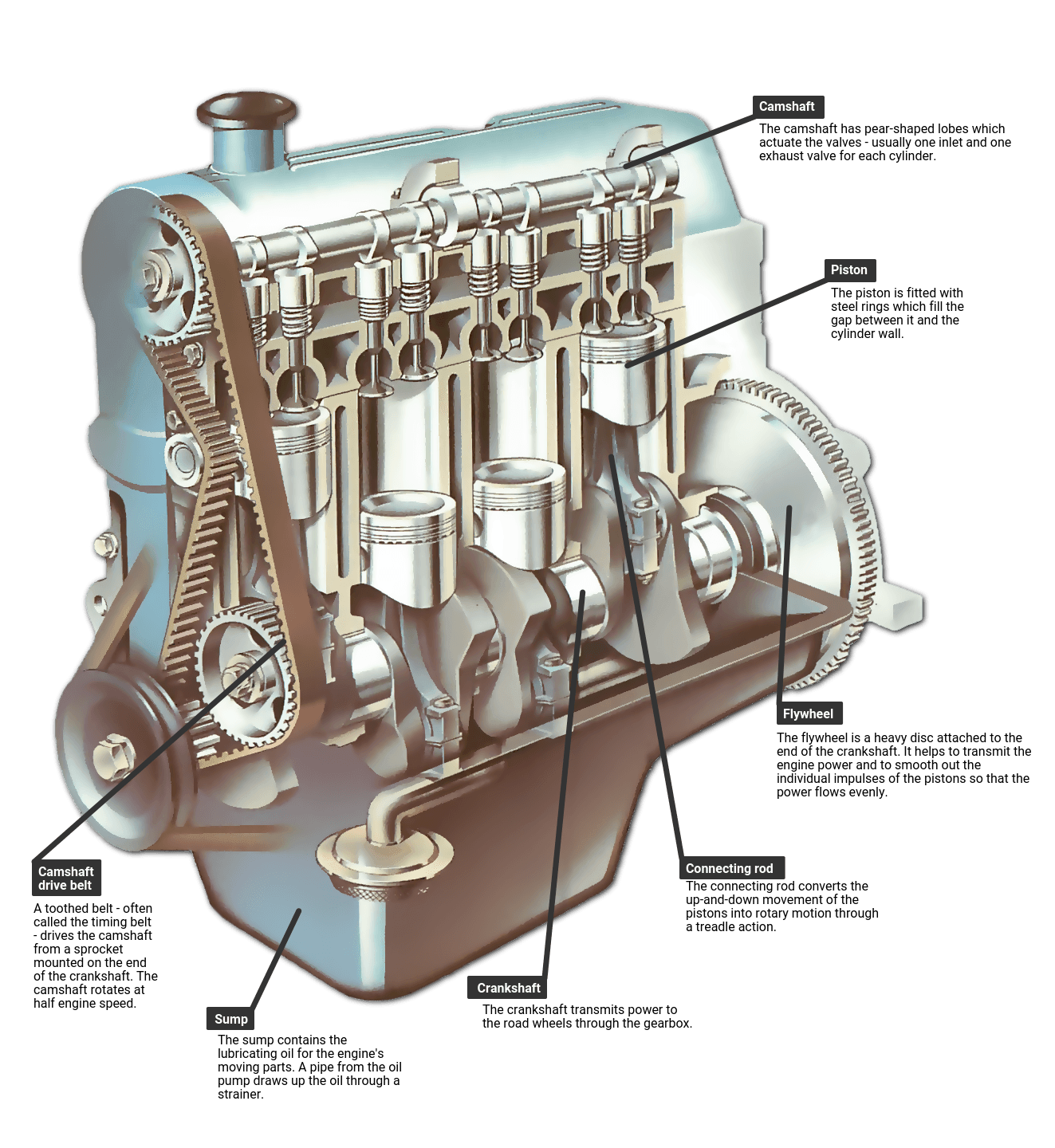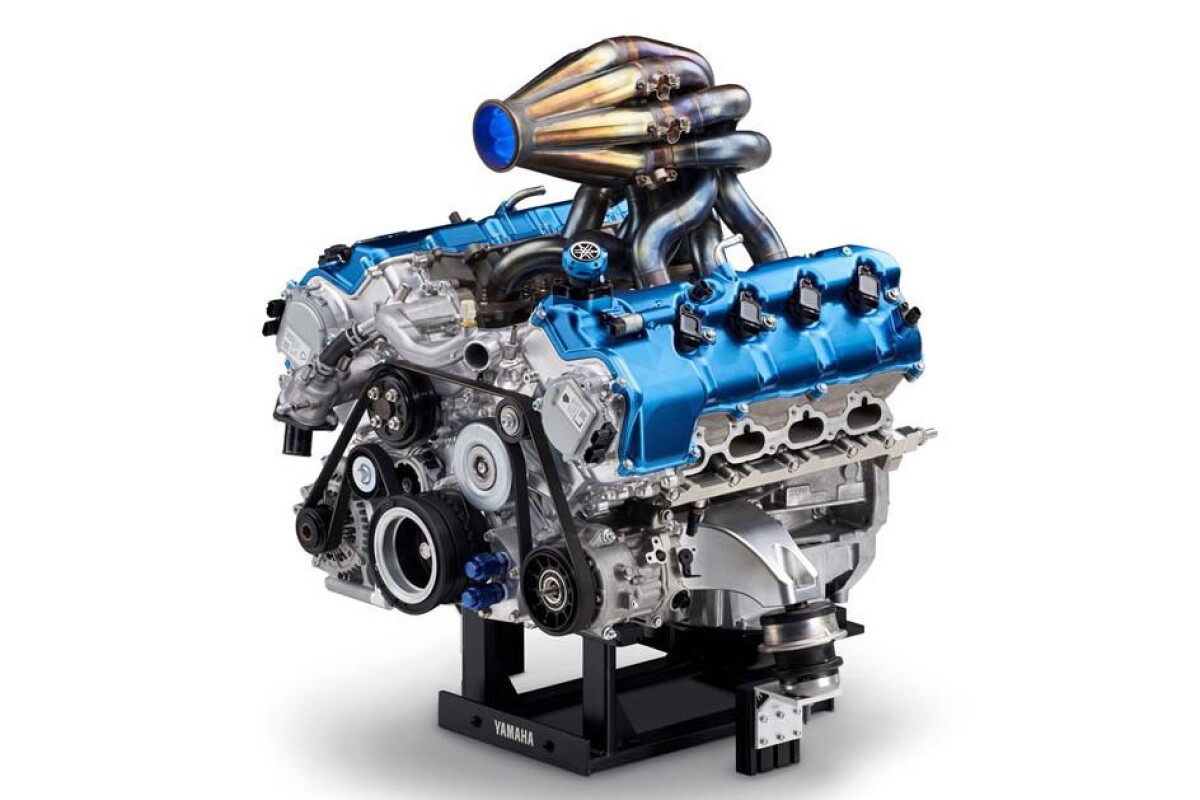Why Companies Prefer Engines For Africa for Their Fleet
Why Companies Prefer Engines For Africa for Their Fleet
Blog Article
Explore a Large Range of Engines for each Lorry and Function
The vehicle landscape is increasingly complex, with a varied variety of engine types developed to satisfy specific performance and effectiveness requirements throughout different lorry groups. From the high-performance engines that power cars to the fuel-efficient options tailored for daily travelling, the selections are large and varied. Furthermore, durable engines serve the needs of work cars, while environment-friendly options are gaining grip in the search of sustainable transportation. Understanding these differences is essential for making notified decisions, specifically as emerging modern technologies remain to form the future of automobile engineering. What effects might these improvements hold for customers and makers alike?
Types of Automotive Engines
Automotive engines can be categorized into numerous distinctive kinds, each designed to fulfill particular efficiency and effectiveness demands. The most typical categories include interior combustion engines, electrical engines, and hybrid systems.

Electric engines, on the other hand, operate electrical power saved in batteries, providing instant torque and zero emissions. These engines are ending up being progressively prominent because of advancements in battery innovation and the expanding focus on sustainability.
Hybrid systems incorporate both internal burning and electrical engines, making it possible for cars to optimize fuel effectiveness and minimize emissions by perfectly switching over between source of power. Each engine kind provides its disadvantages and advantages, affecting elements such as lorry layout, planned use, and market need. Recognizing these distinctions is important for customers and producers alike when picking the suitable engine for their particular requirements.
Efficiency Engines for Sports Cars
Performance engines for cars are particularly engineered to provide boosted agility, power, and speed, setting them aside from typical automotive engines. These engines typically use innovative modern technologies such as turbocharging, supercharging, and variable shutoff timing to make best use of effectiveness and responsiveness.
Typically, performance engines are made with higher compression proportions, which permit greater power extraction from fuel. This leads to remarkable horse power and torque figures, allowing fast velocity and greater full throttle. The light-weight products utilized in these engines, such as light weight aluminum and carbon fiber, add to decreased total automobile weight, improving handling and maneuverability.
Engine configurations like V6, V8, and even hybrid systems prevail in performance cars, each offering special benefits in terms of power delivery and driving characteristics. The adjusting of these engines is also crucial; many producers maximize the engine administration systems to provide an exciting driving experience, often consisting of sporting activity settings that adjust throttle reaction and gear shifts.
Effective Engines for Daily Commuters
In the world of everyday travelling, reliable engines play an important role in maximizing fuel economic situation and minimizing exhausts while supplying reputable performance. As city populations grow and ecological worries increase, the demand for cars furnished with effective powertrains has actually surged.
Modern engines made for day-to-day travelers frequently incorporate technologies such as turbocharging, direct gas shot, and crossbreed systems. Turbocharging improves engine efficiency forcibly even more air into the burning chamber, permitting for smaller, lighter engines that do not compromise power result. Direct gas redirected here shot boosts gas atomization, causing far better combustion and increased performance.
Crossbreed engines, combining internal burning with electrical power, more boost fuel economic climate, particularly in stop-and-go website traffic, where standard engines can deal with ineffectiveness. Electric motors help throughout velocity and can operate individually at reduced rates, decreasing overall gas usage.
Additionally, developments in engine administration systems and lightweight materials add substantially to effective engine layout. By concentrating on performance, durability, and ecological sustainability, manufacturers remain to deliver engines that not just satisfy the needs of daily travelling yet also line up with global efforts to reduce carbon impacts.
Heavy-Duty Engines for Job Automobiles
Sturdy engines for work vehicles are routinely crafted to supply phenomenal torque and dependability under demanding conditions. These engines are designed to do in settings where conventional engines might falter, such as building websites, logging operations, and agricultural setups. The primary emphasis of heavy-duty engines is their ability to generate high levels of power while keeping resilience over extended periods of procedure.
Commonly, durable engines use advanced materials and durable building and construction methods to stand up to the roughness of heavy workloads. Functions such as reinforced cylinder blocks, enhanced air conditioning systems, and progressed gas injection modern technologies contribute to their effectiveness. These engines frequently run at lower RPMs, which helps to enhance gas performance while offering the essential power for lugging and transporting.
Along with mechanical robustness, durable engines are frequently outfitted with advanced electronic control systems (ECUs) that handle efficiency, discharges, and diagnostics. This combination allows for much better tracking and upkeep, making sure that work automobiles remain effective and operational.
Inevitably, heavy-duty engines are an important element in the efficiency of numerous sectors, providing the needed power and reliability to take on the toughest of tasks.
Eco-Friendly Engine Options
The expanding focus on sustainability has caused the growth of green engine alternatives that prioritize lowered discharges and boosted fuel efficiency. These engines are designed to reduce the ecological influence of vehicles while still delivering the performance and reliability expected by consumers.
Amongst the most notable environmentally friendly alternatives are electric and hybrid engines. Hybrid engines incorporate standard internal burning engines with electrical propulsion, enabling reduced gas intake and reduced greenhouse gas emissions. Electric engines, on the other hand, operate entirely on battery power, creating zero tailpipe emissions and adding to cleaner air quality.
An additional appealing growth blog here is the development of biofuel engines, which utilize renewable energies, such as plant materials, to power lorries (Engines For Africa). By using biofuels, these engines can reduce dependence on fossil gas and reduced overall carbon impacts

As the vehicle industry evolves, environmentally friendly engine options will play a crucial duty in driving the transition in the direction of more sustainable transportation services.
Verdict
The auto industry discover here offers a diverse range of engines developed to satisfy numerous automobile requirements and purposes. From high-performance engines that enhance cars abilities to effective versions focusing on gas economic climate for everyday travelers, each type serves a particular feature. Heavy-duty engines deal with durable job automobiles, while environmentally friendly options, such as electrical and biofuel engines, advertise lasting transport. This detailed range guarantees that all driving needs are attended to, adding to improvements in vehicle modern technology and ecological stewardship.

Report this page